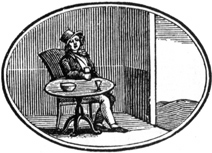Judge: Christian Bök
Deadline: December 31st, 2003

“an Oulipian writer is like a hurdler sprinter
who runs faster when there are hurdles on the track”—Italo
Calvino
flyer—PDF
In 2004, Spineless Books will
award the Fitzpatrick-O'Dinn Award for the Best Book Length Work
of Constrained English Literature to an exemplary work of experimental
literature.
A constraint is a systematic writing technique or overt
formal structure. Examples of constrained writing include certain
classical poetic forms (the
sestina), classical forms not always considered poetic (the
palindrome), as well as a potentially endless variety of techniques
both known (the lipogram)
and yet undiscovered.
Canonical examples include Walter Abish's Alphabetical Africa
(an alphabetic acrostic
using words beginning only with certain letters), Christian Bök's
Eunoia (a univocalic
poetry cycle in which each of five sections excludes four of the
five vowels A E I O and U), Kenneth Goldsmith's No. 111 2.7.93-10.20.96
(a book composed of fragments of text a particular number of syllables
in length), Doug Nufer's Never Again (a nonpattern novel
that never repeats a word), and the two novels Gadsby,
by Ernest Vincent Wright, and Georges Perec's A Void (both
lipograms disallowing
the letter E). For more examples, see http://newspoetry.com/table/bibliography.html#perfectionitself
The winner of the Fitzpatrick-O'Dinn Award will be selected by
Christian Bök, author of Crystallography (Coach House,
1994), the univocalic poem Eunoia (Coach House, 2001), and
winner of the Griffin Prize for Poetic Excellence.
Manuscripts must be unpublished, at least 48
pages, and typewritten or word-processed. Enclose a separate title
page including the title, the author’s contact information,
and an explanation of the constraint(s) used.
Mail manuscripts to the address below postmarked on or before the
deadline of December 31st, 2003. You will receive a confirmation
postcard when we receive your manuscript and payment. Enclose a
SASE if you would like to receive notification of the winner. Manuscripts
will not be returned except by special arrangement.
Include a $20 entry fee. You may submit multiple manuscripts if
you include a separate entry fee and title page for each manuscript.
Make checks to Spineless Books. Or pay by credit card through PayPal
below. Electronic submissions are accepted through floppy disc,
Zip disc, CD-ROM, or URL.
Works will be judged on their literary quality as well as their
elegance, innovation, and rigor.
The winning manuscript will be published artfully by Spineless
Books as a book (with a spine), and in an electronic format that
complements the form. We will work with the author to give the work
the best presentation possible.
Edwin Fitzpatrick was a legendary 19th Century poet, the first
writer we know of to have dabbled in serial techniques such as Twenty
Consonant Poetry. Pontius O'Dinn was an experimental novelist
born in 1951 who made use of various innovative formal techniques,
including combinatorics, homosyntactic transcription, and an acrostic
technique derived from the Fibonacci series. The Fitzpatrick-O'Dinn
Award is named in honor of these two daring experimentalists.
Direct questions to William.
|



